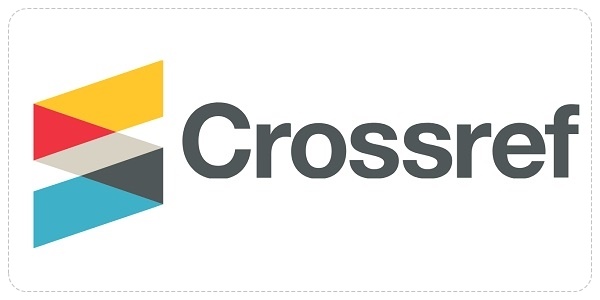Revealing the Legacy of Ki Hajar Dewantara: Reforming Educational Policies in the Contemporary Context
Abstract
This study explores the enduring relevance of Ki Hajar Dewantara’s educational philosophy in shaping modern educational thought and policy. Dewantara, the founder of the Taman Siswa movement, advocated for a holistic approach to education that integrates intellectual, moral, and physical development while emphasizing the preservation of local cultural identity amidst global influences. His principles—Ing Ngarsa Sung Tuladha (leading by example), Ing Madya Mangun Karsa (fostering initiative), and Tut Wuri Handayani (providing supportive guidance)—serve as the foundation for creating inclusive, culturally responsive, and character-driven educational systems. In response to contemporary challenges such as inclusivity, equity, and the impact of globalization, this article examines how Dewantara’s framework can be adapted to modern education. By integrating local cultural values and global competencies, Dewantara’s philosophy offers a comprehensive model for policy reforms that empower educators, foster student agency, and nurture ethical, globally-minded individuals. Through a qualitative approach combining historical analysis and literature review, this study highlights the practical application of Dewantara's principles in contemporary educational settings and outlines a policy framework to guide educational transformation.
Keywords
Full Text:
PDFReferences
Ala’i, T. (2019, December). The Improvement of Madrasah Ibtidaiyah Achievement Through Principal’s Transformational Leadership. In 3rd International Conference on Education Innovation (ICEI 2019) (pp. 40-44). Atlantis Press. https://doi.org/10.2991/icei-19.2019.56
Alhazmi, A. A., & Almashhour, R. A. (2024). Fragmentation of organizational identity in Saudi universities: The impact of neoliberalism. Studies in Higher Education, 49(12), 2311-2327. https://doi.org/10.1080/03075079.2023.2299326
Antoninis, M., April, D., Barakat, B., Bella, N., D’Addio, A. C., Eck, M., Endrizzi, F., Joshi, P., Kubacka, K., McWilliam, A., Murakami, Y., Smith, W., Stipanovic, L., Vidarte, R., & Zekrya, L. (2020). All means all: An introduction to the 2020 Global Education Monitoring Report on inclusion. PROSPECTS, 49(3–4), 103–109. https://doi.org/10.1007/s11125-020-09505-x
Arsad, N. M., Nasri, N. M., Soh, T. M. T., Mahmud, S. N. D., Talib, M. A. A., & Halim, L. (2020). A systematic review on culturally relevant science teaching: Trends and insights. American Institute of Physics, 2216, 040003. https://doi.org/10.1063/5.0000530
Astuti, D. S., & Sudrajat. (2020). Promoting inclusive education for social justice in Indonesia. Proceedings of the 2nd International Conference on Social Science and Character Educations (ICoSSCE 2019). https://doi.org/10.2991/assehr.k.200130.037
Barnes, M. E., & Marlatt, R. (2022). From involvement to solidarity: Community engagement to foster culturally-proactive and constructivist pedagogy. Journal of Curriculum and Pedagogy, 19(1), 4-27. https://doi.org/10.1080/15505170.2020.1832005
Bowen, G. A. (2009). Document analysis as a qualitative research method. Qualitative research journal, 9(2), 27-40. https://doi.org/10.3316/QRJ0902027
Buchs, C., & Maradan, M. (2021). Fostering equity in a multicultural and multilingual classroom through cooperative learning. Intercultural Education, 32(4), 401-416. https://doi.org/10.1080/14675986.2021.1889985
Capobianco, S., Chen, X., Líppez-De Castro, S., & Rubaii, N. (2018). Enhancing global and intercultural competencies in Master of Public Administration classes. Teaching Public Administration, 36(2), 178–200. https://doi.org/10.1177/0144739417753031
Chand, P. (2011). Education in the ERA of globalisation: Issues and challenges. Indian Journal of Public Administration, 57(2), 320–332. https://doi.org/10.1177/0019556120110211
Chanicka, jeewan, Mahari de Silva, R., & Merkley, K. (2018). An inclusive design vision for Canada-schooling as a process for participatory democracy and responsible citizenship. Intercultural Education, 29(5–6), 632–646. https://doi.org/10.1080/14675986.2018.1508620
Clarke, L. (2021). " To Educate and Liberate?" Moving from coloniality to postcoloniality in the International Branch Campus Model. Journal of Comparative and International Higher Education, 13(5), 15-35. https://doi.org/10.32674/jcihe.v13i5.3655
Cleveland, M., Papadopoulos, N., & Laroche, M. (2022). Global consumer culture and national identity as drivers of materialism: an international study of convergence and divergence. International Marketing Review, 39(2), 207-241. https://doi.org/10.1108/IMR-02-2021-0097
Coelen, R. (2015). Why Internationalize Education? International Higher Education, 83, 4–5. https://doi.org/10.6017/ihe.2015.83.9074
Correa, V., & Tulbert, B. (1991). Teaching culturally diverse students. Preventing School Failure: Alternative Education for Children and Youth, 35(3), 20–25. https://doi.org/10.1080/1045988X.1991.10871070
Darmawan, I. P. A., & Sujoko, E. (2019). Understanding Ki hadjar dewantara’s educational philosophy. International Journal of Humanities and Innovation (IJHI), 2(3), 65-68. https://doi.org/10.33750/ijhi.v2i3.42
Dei, G. (2015). Global education from an ‘indigenist’ anti-colonial perspective. Journal of Contemporary Issues in Education, 9(2). https://doi.org/10.20355/C53G6B
Ferary, D. (2021). On Ki Hadjar Dewantara’s philosophy of education. Nordic Journal of Comparative and International Education (NJCIE), 5(2), 65-78. https://doi.org/10.7577/njcie.4156
Ferary, D. (2023). A philosophical perspective on the purpose of education in Indonesia. In comparative and decolonial studies in philosophy of education (pp. 51-71). Singapore: Springer Nature Singapore. https://doi.org/10.1007/978-981-99-0139-5_4
Freeman, K. (1999). No Services needed?: The case for mentoring high-achieving African American students. Peabody Journal of Education, 74(2), 15–26. https://doi.org/10.1207/s15327930pje7402_3
Irnawati, H., Anshori, A., & Widiastuti, N. The integration of character values in the equivalency education program at Ash-Shodiq Community Learning Center Lembang. PEDAGOGIA, 22(1), 65-76.https://doi.org/10.17509/pdgia.v22i1.72291.
Hartman, E., Kiely, R. C., Friedrichs, J., & Boettcher, C. (2023). Community-based global learning: The theory and practice of ethical engagement at home and abroad. Taylor & Francis.
Haryati, T., & Suciptaningsih, O. A. (2020, November). Character values in the teachings of Ki Hajar Dewantara. Proceedings of the 2nd International Conference on Education and Social Science Research (ICESRE 2019). https://doi.org/10.2991/assehr.k.200318.041
Hermawan, A., & Tan, E. B. (2021). Philosophy of education: “Tut Wuri Handayani” as the spirit of governance process in Indonesia’s educational organization. International Journal of Humanities and Innovation (IJHI), 4(2), 82–85. https://doi.org/10.33750/ijhi.v4i2.112
Hutagaol, K., Saija, L., & Panjaitan, M. M. J. (2020). The ing ngarsa sung tuladha cooperative learning model and students’ problem solving abilities. JOHME: Journal of Holistic Mathematics Education, 3(2), 118. https://doi.org/10.19166/johme.v3i2.2005
Julianto, H. D., & Subroto, W. T. (2019). Multicultural education based on local education In Elementary School. International Journal of Educational Research Review, 4(3), 420–426. https://doi.org/10.24331/ijere.573943
Khalifa, M. A., Khalil, D., Marsh, T. E. J., & Halloran, C. (2019). Toward an Indigenous, Decolonizing School Leadership: A Literature Review. Educational Administration Quarterly, 55(4), 571–614. https://doi.org/10.1177/0013161X18809348
Manullang, D., Daryanto, E., & Zainuddin. (2019, November). Evaluation of policy for inclusive education in Early Childhood Education institutions in Medan City. Proceedings of the 4th Annual International Seminar on Transformative Education and Educational Leadership (AISTEEL 2019). https://doi.org/10.2991/aisteel-19.2019.27
Marimuthu, S., & Cheong, L. S. (2015). Inclusive education for social transformation. Procedia - Social and Behavioral Sciences, 172, 317–322. https://doi.org/10.1016/j.sbspro.2015.01.370
Marouli, C. (2021). Sustainability education for the future? Challenges and implications for education and pedagogy in the 21st century. Sustainability, 13(5), 2901. https://doi.org/10.3390/su13052901
Masitoh, S., Ardianingsih, F., & Roesminingsih, E. (2020, November). The actualization of Ki Hajar Dewantara’s character values at the center for local wisdom: Developing Educational Sciences at Unesa’s Faculty of Education. Proceedings of the 1st Progress in Social Science, Humanities and Education Research Symposium (PSSHERS 2019). https://doi.org/10.2991/assehr.k.200824.233
Merriam, S.B., & Tisdell, E.J. (2016). Qualitative research: A guide to design and implementation (4th ed.). San Francisco, CA: Jossey-Bass.
Moosa, V., Shareefa, M., Adams, D., & Mohamed, A. (2022). Assessing teacher readiness for inclusive education in Maldives: Instrument modification and validation. International Journal of Disability, Development and Education, 69(6), 1888–1904. https://doi.org/10.1080/1034912X.2020.1837355
Moravec, J. W., & Martínez-Bravo, M. C. (2023). Global trends in disruptive technological change: social and policy implications for education. On the Horizon: The International Journal of Learning Futures, 31(3-4), 147-173. https://doi.org/10.1108/OTH-02-2023-0007
Muthoifin, M. (2024). Ki Hadjar Dewantara's thoughts on character and education. Journal of World Thinkers, 1(01), 75-90.
Nguyen, N. T., & Chia, Y. T. (2023). Decolonizing research imagination: A journey of reshaping research epistemology and ontology. Asia Pacific Education Review, 24(2), 213-226. https://doi.org/10.1007/s12564-023-09822-8
Nisa, A. F., Prasetyo, Z. K., & Istiningsih. (2020, November). The teachings of ki hadjar dewantara in improving the character of elementary school students in the revolution of industry 4.0 Era. In Advances in Social Science, Education and Humanities Research: International Conference on Educational Research and Innovation (ICERI 2019) (Vol. 401, No. 8). https://doi.org/10.2991/assehr.k.200204.010
Pane, J., Steiner, E., Baird, M., Hamilton, L., & Pane, J. (2017). Informing progress: Insights on personalized learning implementation and effects. RAND Corporation. https://doi.org/10.7249/RR2042
Radcliffe, D. (1971). Ki Hadjar Dewantara and the Taman Siswa Schools; Notes on an extra-colonial theory of education. Comparative Education Review, 15(2), 219–226. https://doi.org/10.1086/445532
Rambitan, S. R. (2021, June). Ing Ngarsa Sung Tuladha, Ing Madya Mbangun Karsa, Tut Wuri Handayani: Methods of Javanese Local Wisdom Used in Christian Religious Education. In 2nd Annual Conference on blended learning, educational technology and Innovation (ACBLETI 2020) (pp. 44-48). Atlantis Press. https://doi.org/10.2991/assehr.k.210615.009
Rude, H. A., Paolucci-Whitcomb, P. E., & Comerford, S. (2005). Ethical leadership: Supporting human rights and diversity in rural communities. Rural Special Education Quarterly, 24(4), 26–31. https://doi.org/10.1177/875687050502400405
Sandra, L., & Juniar, D. R. (2021, April). Ki Hajar Dewantara’s educational philosophy: Among and student’s academic performance. In 2nd International Conference on Technology and Educational Science (ICTES 2020) (pp. 118-121). Atlantis Press. https://doi.org/10.2991/assehr.k.210407.224
Sarumaha, M. S. (2020, November). Educational management based on indigenous knowledge (Narrative Studies of Culture of Indigenous Knowledge in South Nias). Proceedings of the 1st International Multidisciplinary Conference on Education, Technology, and Engineering (IMCETE 2019). https://doi.org/10.2991/assehr.k.200303.036
Shulsky, D. D., Baker, S. F., Chvala, T., & Willis, J. M. (2017). Cultivating layered literacies: Developing the global child to become tomorrow’s global citizen. International Journal of Development Education and Global Learning, 9(1). https://doi.org/10.18546/IJDEGL.9.1.05
Siahaan, A., Rafida, T., & Batubara, K. (2020). Influence of Madrasah head leadership, motivation and madrasah culture on teacher performance in Madrasah Aliyah Model 2 Medan. Budapest International Research and Critics Institute (BIRCI-Journal): Humanities and Social Sciences, 3(3), 2174–2182. https://doi.org/10.33258/birci.v3i3.1150
Singh, N. K., & Espinoza-Herold, M. (2014). Culture-based education: Lessons from Indigenous Education in the U.S. and Southeast Asia. NABE Journal of Research and Practice, 5(1), 7–39. https://doi.org/10.1080/26390043.2014.12067773
Slimbach, R. (2005). The transcultural journey. Frontiers: The Interdisciplinary Journal of Study Abroad, 11(1), 205–230. https://doi.org/10.36366/frontiers.v11i1.159
Spring, J. (2008). Research on globalization and education. Review of Educational Research, 78(2), 330–363. https://doi.org/10.3102/0034654308317846
Stein, K. C., Mauldin, C., Marciano, J. E., & Kintz, T. (2024). Culturally responsive-sustaining education and student engagement: A call to integrate two fields for educational change. Journal of Educational Change, 1-27. https://doi.org/10.1007/s10833-024-09510-3
Sukiastini, I. G. A. N. K., Suharta, I., & Lasmawan, I. W. (2024). Analysis of the Independent Curriculum from the Perspective of the School of Education Philosophy and the Philosophy of Ki Hajar Dewantara. Path of Science, 10(5), 3085-3093. https://doi.org/10.22178/pos.104-31
Syafriani, Y., Zuraira, T., Hasibuan, R. H., & Sitepu, I. B. (2022). Strategi pembelajaran guru dalam meningkatkan mutu belajar siswa di Madrasah Aliyah Negeri (MAN) Karo. Intelegensia : Jurnal Pendidikan Islam, 10(1), 34–42. https://doi.org/10.34001/intelegensia.v10i1.2608
Thomas, M. L. (2005). Infusing culture into the curriculum. Journal of Curriculum and Pedagogy, 2(2), 62–64. https://doi.org/10.1080/15505170.2005.10411546
Uyuni, B., & Adnan, M. (2024). Philosophical foundations in training traditional religious educators: Bridging past and present. Futurity Philosophy, 3(2), 40-65. https://doi.org/10.57125/FP.2024.06.30.03
Widiyarto, S., & Purnomo, B. (2023). Freedom to learn in Ki Hajar Dewantara's perspective: Historical studies and their relevance to character education. International Journal of Business, Law, and Education, 4(2), 837-844. https://doi.org/10.56442/ijble.v4i2.185
Yetti, E. (2024). Pedagogical innovation and curricular adaptation in enhancing digital literacy: A local wisdom approach for sustainable development in Indonesia context. Journal of Open Innovation: Technology, Market, and Complexity, 10(1), 100233. https://doi.org/10.1016/j.joitmc.2024.100233
Zhang, J. (2019). Educational diversity and ethnic cultural heritage in the process of globalization. International Journal of Anthropology and Ethnology, 3(1), 7. https://doi.org/10.1186/s41257-019-0022-x
DOI: https://doi.org/10.17509/pdgia.v23i1.76775
Refbacks
- There are currently no refbacks.
INDEXED BY

This work is licensed under a Creative Commons Attribution-ShareAlike 4.0 International License
















